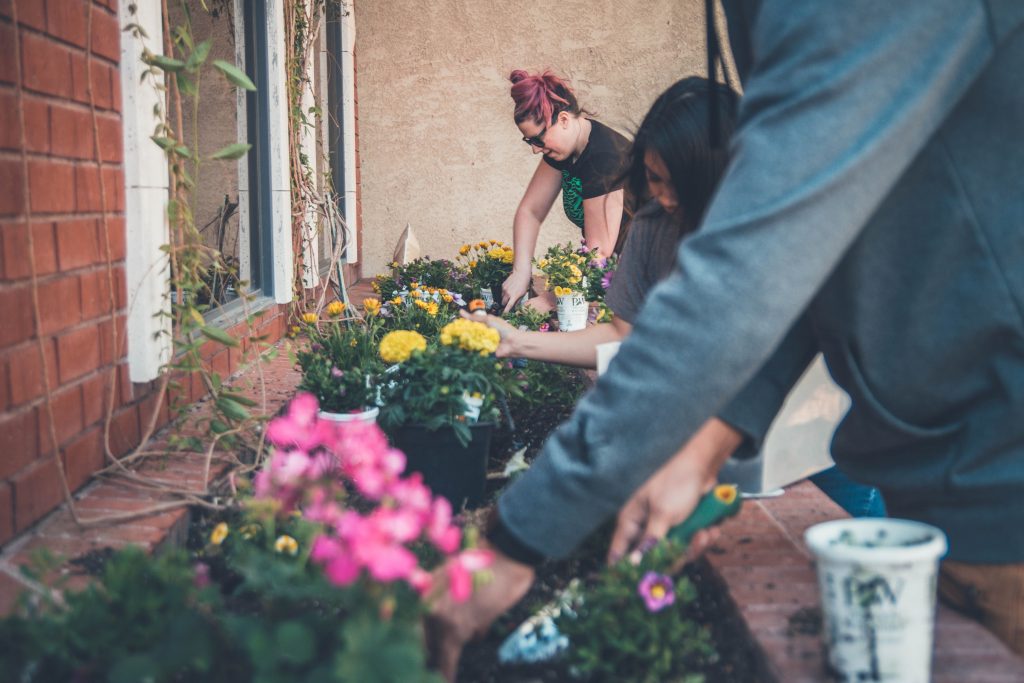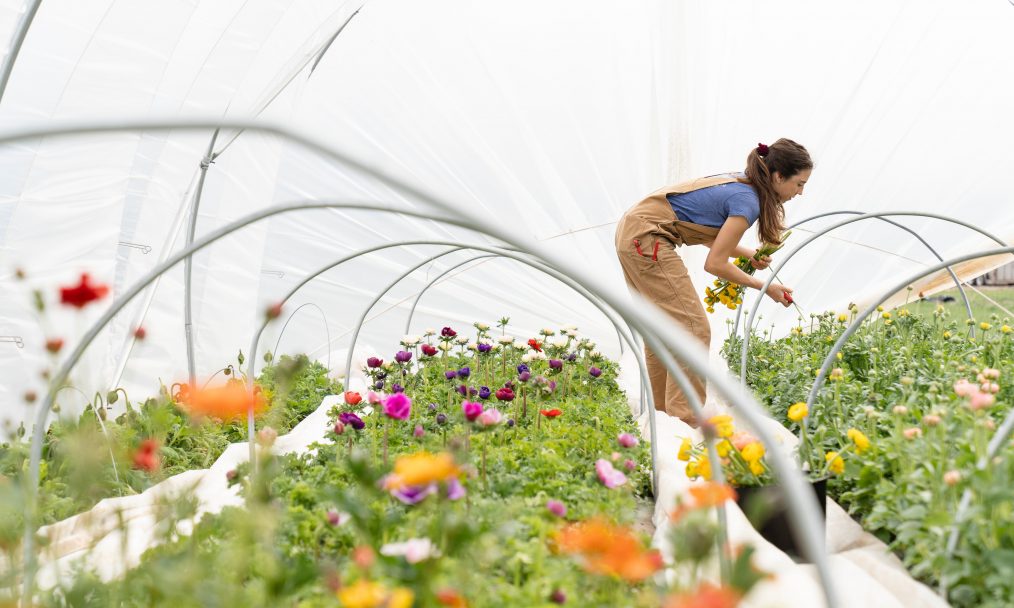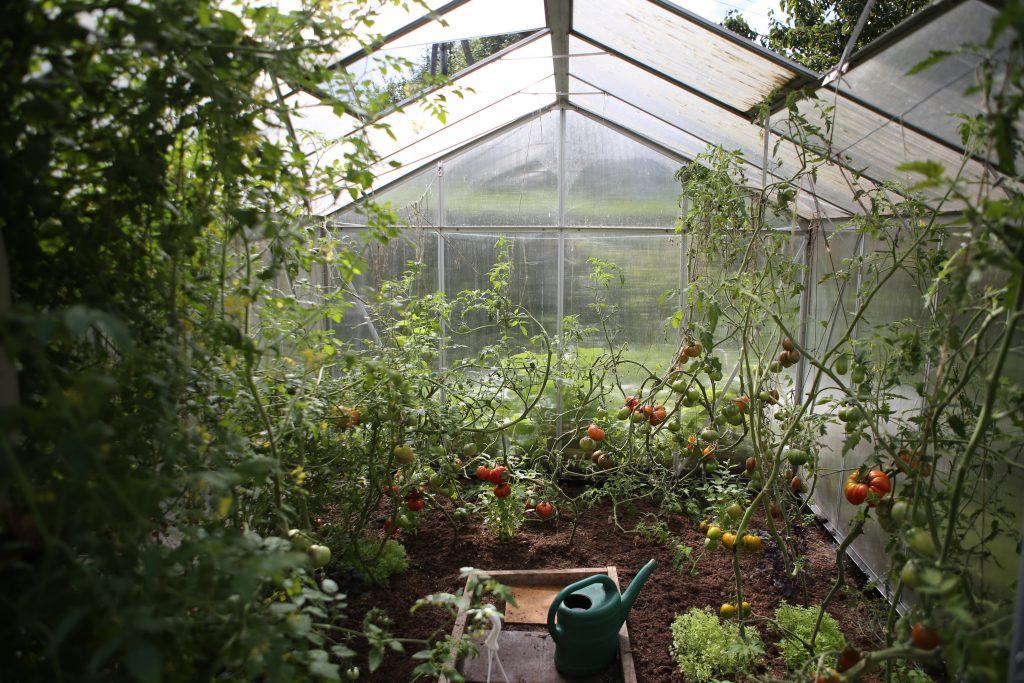Many of us want to stay in Australia after finishing our studies and, if things work in our favour, get permanent residence. To achieve this goal, one of the most common ways is to study at an Australian university and thus obtain an academic degree that allows you to access greater job opportunities and a two-year postgraduate visa. But what if we really don’t want to go to university, either for economic reasons or simply because – like me – you already went to university in your home country and you don’t want to do it again? Is there any other possibility that will lead us to obtain permanent residence in Australia as students? Fortunately, the answer is yes, we do have more alternatives, and I found one that I am very excited about horticulture.
In a new chapter of my never-ending adventure titled “How to be a student in Australia, not die trying, discover what you are passionate about and get permanent residence”, I am about to take a 360° (thousand) turn to start a new diploma in a totally unknown area to me, in which I will stop typing on the computer to get my hands in the ground, I will learn about the origin of food and the processes of plants, and where orchards and greenhouses will be my second classroom. This will be my life now that I will start the Diploma in Horticulture, and I can’t wait!
Why horticulture?
Horticulture is a technical career in Australia with a wide field of work, much more economically accessible than going to university (depending on the school you choose, prices start at 8k per year) and that can also help you achieve the much dreamed permanent residency through regional programs.
The idea of continuing my studies in the communications field wasn’t really motivating me, and I realised I needed a change, a challenge, something completely new. It also happened to me, like too many others, that with the pandemic I began to question many things, including what I want to do in Australia. I firmly believe that the world will begin to change little by little after this crisis and that living in a more sustainable way will be key. Climate change, circular economy and urban gardens are, among others, topics that interest me greatly and searching, asking, thinking about how I could begin to be part of this paradigm shift, I found out that my school in Adelaide, Ironwood Institute, has among its courses the option of Horticulture which will allow me to start to be involved in this green world.
In simple words, horticulture is the discipline that deals with the production of vegetables or herbs on small areas intended for consumption. The term is etymologically divided into the Latin roots Hortus ( ‘garden’, ‘plant’) and culture (‘cultivation’), that is, ‘garden cultivation’. South Australia, where I have been living for almost a year, is an important regional area with world-class horticulture, recognised for being environmentally clean, safe and advanced. Tomatoes, potatoes, almonds and citrus are the most numerous products produced in the region, within a wide range of vegetable, fruit and nut crops.
Horticulture has different areas that are divided according to the type of crops produced and how the plants are used. Beyond the branches commonly known as Pomology – when we refer to fruits – and Olericulture – vegetable production – we must also mention Floriculture, which focuses on the cultivation of flowers and foliage; Plant Nurseries and Propagation, which develops and reproduces plant seeds, shrubs, trees, ornamental plants and ground cover. These plants are generally used in landscaping or interior landscaping projects, which brings us to the last aspect of this discipline known as Landscape Horticulture. Have you ever wondered who creates those beautiful parks and gardens around the city? Landscape gardeners design, build and care for landscapes in homes, businesses, and public areas.
With all of the above, it becomes clear that horticulture is a vast and necessary industry in Australia and worldwide. Fruits, vegetables, plants and trees are an important part of our daily life and their production and care are essential. It’s not difficult then to imagine being able to get a job in this area after studying the Diploma in Horticulture and, subsequently, obtaining a regional visa that will lead to a permanent residence in the country. But, how?

The advantages of studying horticulture: Regional Visa 491
Australia’s regional areas have a lot to offer. If you are willing to change the busy pace of life of big cities for something calmer, the beauties and attractions of the regions are not far behind. If you add to that the regional visas that the Australian government has been promoting for a while, there is not much to think about …
After talking with different immigration agents and doing my own research online on the official government websites, I can say that the regional outlook is encouraging. I’m especially referring to the Regional 491 Visa, which allows you to get a work visa for five years within which you could – if you meet all the requirements – apply for permanent residence in the country.
“The most important thing is to verify that you meet the requirements of the region, first, and then the requirements for your skill assessment,” says Nicolás Miranda, an immigration agent from Miranda Migration (nicolas@mirandamigration.com.au).
The story goes like this: to get the regional 491 visa – and most work visas in Australia – you first have to make sure the career you are studying is on the skilled occupation list, a document that shows the occupations in demand in the country. Each state, at the same time, has specific occupations in demand depending on the most required jobs by area and category and in the case of South Australia, Horticulture – detailed in the skilled occupation list as Agricultural technician – is an option to apply for this visa.
“Each occupation has different academic requirements, that is, the educational qualification and work experience that the Immigration Department requests varies from one occupation to another,” says Nicolás. “Thus for some occupations, a university bachelor degree is required, and in others only a diploma, such as horticulture. If you have the skills and qualifications of occupations that are in demand, it gives you a better chance of getting a visa”.
Do you want to talk in detail about your particular situation with an immigration agent? Write to us at info@puravidastudy.com.au and we can put you in contact with someone if you wish.
After completing the Diploma in Horticulture, you must obtain one year of work experience in the regional area in which you reside, with a paid job in your area of study for a minimum of 20 hours per week. After that year, you can complete your skilled assessment – which assesses that your skills meet the standards established in Australia to work in a relevant occupation – and then, you must receive an invitation from the same state in which you reside to apply to your visa. At that time you should already have the necessary points to obtain it, taking into account that living, studying and working in regional Australia – in my case South Australia – gives you many more points compared to if you did the same in bigger cities like Sydney, Melbourne or Brisbane.
What comes next …
If you think that Horticulture can be for you too, consider that the road to get your permanent residence will be long, but it will reward you in knowledge, learning and new ways of seeing life. It will allow you to meet new people and start your career in an area where you will certainly have no shortage of projects if you are willing to start from the bottom and gradually achieve your goals. Australia is full of opportunities and challenges waiting for you.
For my part, I would also like to tell you that with Horticulture we started a series of articles about different, unconventional and rather technical careers that you can study in regional areas and that you should consider when coming to study in Australia, especially if you are thinking to stay here after finishing your studies and starting – or continuing – a career on this beautiful island.
Do you have any particular suggestion about the careers you would like to know about? Any regional area in focus? Write to us at info@puravidastudy.com.au to answer your questions, or leave us a comment below!



